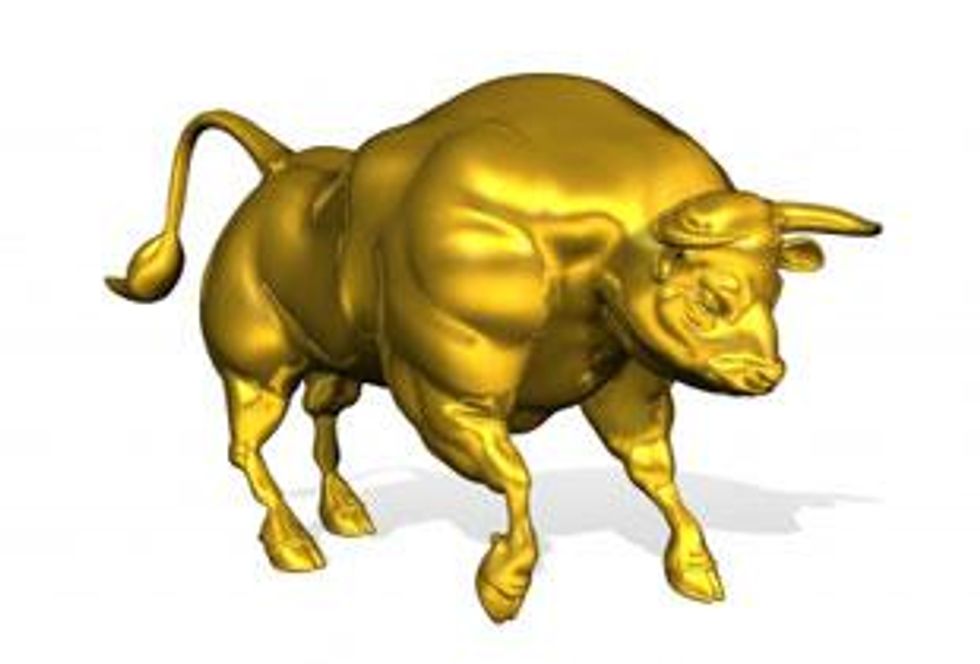Relative to the total return of funds within its category, Oppenheimer Gold is top quartile in the US, from the Lipper ranking over 1, 3, and 5 years; and finished in the ultra elite second percentile among Morningstar Specialty-Precious Metal fund over a one year period.
The US based Oppenheimer Gold and Special Minerals Fund (MUTF:OPGSX) has generated a significant amount of attention since its inception dating back to July 18, 1983. Last year the fund won the prestigious Lipper Fund Award for the United States in the Gold Oriented Fund category for its 5 year performance. Over the course of the one, three, and five year categories the fund has generated compound annualized average returns of 54.5 percent, 19.1 percent and 25.9 percent respectively. Relative to the total return of funds within its category, Oppenheimer Gold is top quartile in the US, from the Lipper ranking over 1, 3 and 5 years; and managed to finish in the ultra elite second percentile among Morningstar Specialty-Precious Metal fund over a one year period.
Investment considerations
At $5 billion of assets under management, the size of this fund is relatively large, limiting some risk and also the exposure to smaller exploratory positions which can constrict the upside potential. This is a US based fund, so it is necessary for investors to note the direct currency exposure to the American dollar. This fund features a competitive Management Expense Ratio totaling 1.12 percent of assets; however, because different regulations apply to US funds, the composition of what is included in the MER is slightly different. A very unique aspect of this fund to for investors to consider is that the manager believes that uranium shares will be a broad range phenomenon for changing energy structure over a long term horizon and any market correction could be seen as a good buying opportunity. Other metals and special minerals covered are platinum, palladium, silver and even lithium; when these industries are experiencing a supply and demand mismatch.
Portfolio management
Shanquan Li is a Vice President and Portfolio Manager who has served as manager of the fund since June 1997. Mr. Li completed all requirements except a dissertation for a Ph.D. in Economics from Boston University and holds an M.A. in International Finance and Economics from Brandeis University and a B.A. in Statistics and Management Planning from the People’s University of China. Prior to joining Oppenheimer Funds in 1995 as a Senior Equity Analyst, Mr. Li was a Senior Quantitative Analyst in the Investment Management Policy Group of Brown Brothers Harriman, where he built stock screening and valuation models, formulated quantitative strategies and participated in the management of a quantitative small-cap fund.
Style
The fund uses a proprietary three-tier model that is designed to assess a company’s financial statements and management structure, as well as the company’s operations and new developments. To arrive at buy-and-sell decisions, Mr. Li considers the growth potential and the valuations of the stocks of particular companies, and ranks the companies that have been reviewed by the model. Investments are qualitatively screened initially by the value of those reserved resources and the ease of extraction of the ore as well as the metal from the ore. Secondly, location and geopolitical risk is considered, as the resources must be located in a country with stable governments and good operational environments which should reduce the production cost. The third factor Mr. Li considers is the management team of the company, their past history and capacity and their trustworthiness, especially with respect to shareholders.
Following this qualitative methodology the market cap and liquidity are taken into consideration. As quantitiave metrics are employed one of the most important evaluation methods appraises the price-to-net asset value to assess intrinsic value.
Equity positions in the portfolio are created in three tiers in order of importance. The first tier is a list of some ten companies with relatively lesser risk, which form the core holdings in the portfolio. These holdings represent about 50 percent of the assets in the portfolio.
The intermediate tier consists of emerging producers or miners that have put in resources and money and are on the verge of production. Investors will note that these firms typically draw a lot of attention in terms of liquidity, trading and industry news flow coverage.
The third tier has the list of companies that are the riskier early stage exploration companies. Since these firms have no production, it is more difficult to evaluate them and so Mr. Li prefers to hold many names to have diversity and thus reduce concentration risk. The size of the investment universe for the fund is about 500 equities and it will hold somewhere around 95 names to make up the portfolio while covering all three tiers.
Top holdings
The top 20 positions in the fund include:
Goldcorp Inc. (TSX:G), Agnico-Eagle Mines (TSX:AEM) , Eldorado Gold Corp (NYSE:EGO) , Barrick Gold Corp. (TSX: ABX), Newcrest Mining Limited (ASX:NCM) (PINK:NCMGY), Randgold Resources, Ltd. (NASDAQ:GOLD), New Gold, Inc. (TSX:NGD) , IAMGold Corporation (TSX:IMG), Impala Platinum Holdings (PINK:IMPUY) , Silver Wheaton Corporation (TSX:SLW), Osisko Mining Corp. (TSE:OSK), Franco-Nevada Corporation (TSX:FNV), Yamana Gold (TSX:YRI), San Gold Corporation (TSX: SGR) , Newmont Mining Corporation (TSX:NMC) (NYSE:NEM), Rubicon Minerals Corp (TSX:RMX) , Centamin Egypt Limited (LON:CEY), Romarco Minerals Inc (TSXV:R) and Lake Shore Gold Corp (TSX:LSG) .






